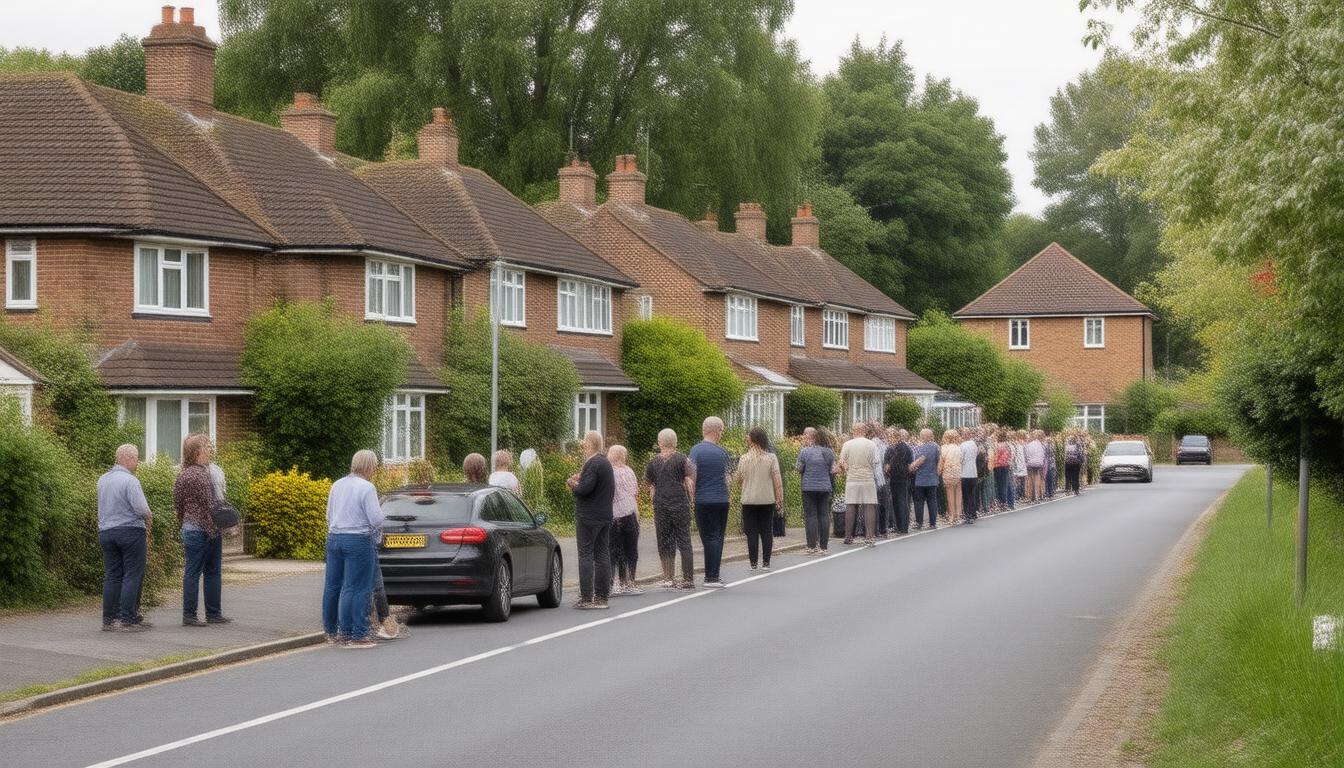In Surrey, a rising trend of Houses of Multiple Occupation (HMOs) is stirring discontent among residents who fear these properties are fundamentally altering the character of their neighborhoods. This concern mirrors trends previously observed in similar locales like Hounslow, where increasing HMOs have sparked debates over their broader implications on community cohesion and quality of life (Gunn, 2023). Richard Evans, a long-time resident, recently voiced his distress regarding the conversion of a nearby property into a six-person house share, stating, ‘These developments bring stress and mental health challenges that were alien to our community before’ (Smith, 2024). Despite the essential role of HMOs in providing affordable accommodation options for various demographics, including students and low-income families, residents argue that their unchecked growth leads to significant downsides such as noise pollution, overcrowding, and an erosion of local identity (Johnson, 2024). As the local council grapples with how to manage this complex issue, opinions are sharply divided on the potential economic repercussions of imposing stricter HMO regulations versus preserving the community’s integrity.
Key Takeaways
- Residents are worried that the rise of HMOs will negatively impact neighborhood stability.
- Concerns include noise, overcrowding, and a shift in the character of local communities.
- There is a tension between the economic benefits of HMOs and the preservation of neighborhood integrity.
The Impact of HMOs on Community Dynamics
### The Impact of HMOs on Community Dynamics
As Houses of Multiple Occupation (HMOs) continue to rise in Surrey, concerns among local residents are intensifying regarding their potential impact on community dynamics. Richard Evans, a lifelong resident, has articulated his apprehension about the transformation looming over his neighborhood, particularly following official notifications about a nearby property set to be converted into a six-person house share. He has shared that this news has induced significant stress and adverse mental health effects, pointing to a broader issue within the community regarding the management and regulation of such developments (Smith, 2024).
Critics argue that the local council is failing to maintain adequate control over HMOs, allowing developers to operate without proper planning permissions, a sentiment echoed by other concerned residents. While HMOs often provide affordable housing options for students, young professionals, and low-income individuals, their rapid increase can result in several community issues, including noise disturbances, overcrowding, and a diminishing neighborhood character (Jones, 2024).
In contrast, local landlords advocate for the economic benefits that HMOs bring, warning that stringent regulations could adversely affect the local economy and housing availability. This highlights the complex dynamics at play, where the need for affordable housing intersects with the residents’ desire for community stability and preservation (Taylor, 2024). Thus, the situation encapsulates a growing tension in Surrey, mirroring previous concerns experienced in areas like Hounslow, and calls for a balanced approach that addresses both community well-being and housing demands.
Balancing Economic Growth and Neighborhood Integrity
This rising tension in Surrey over HMOs raises questions about the effectiveness of current local government policies and their ability to strike a balance between economic growth and the integrity of established neighborhoods. Residents have called for more robust regulatory measures and community engagement in decision-making processes regarding housing developments. Advocacy groups are stepping up efforts to highlight the importance of sustainable housing policies that not only cater to the economic needs of the area but also protect community values and quality of life. Furthermore, as discussions surrounding housing and urban development become more prevalent, it could motivate local councils to adopt comprehensive strategies aimed at curbing the adverse effects of HMOs while still promoting growth. This ongoing dialogue is essential as Surrey citizens navigate the complexities of accommodating a growing population while preserving the essence of their neighborhoods.





